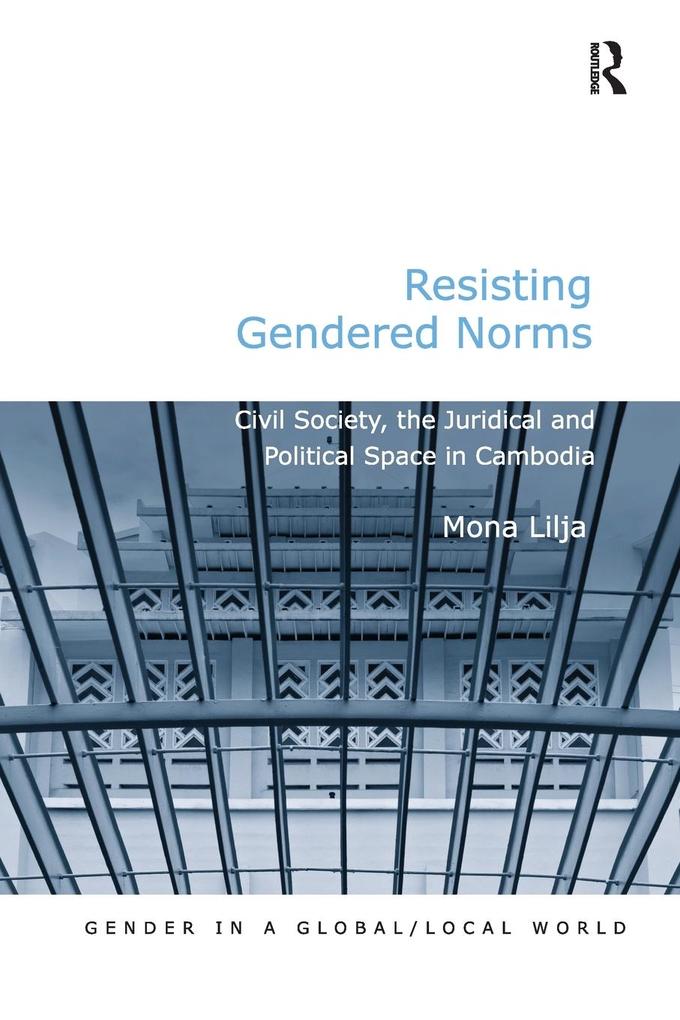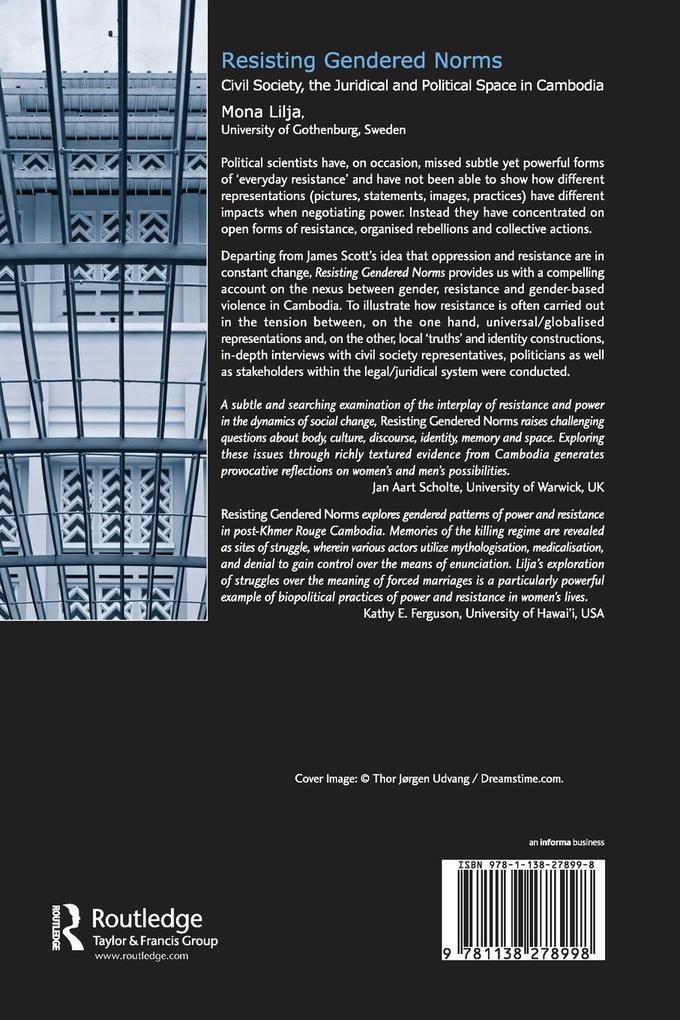
Zustellung: Mo, 18.08. - Do, 21.08.
Versand in 5 Tagen
VersandkostenfreiBestellen & in Filiale abholen:
Departing from James Scott's idea that oppression and resistance are in constant change, Resisting Gendered Norms provides us with a compelling account on the nexus between gender, resistance and gender-based violence in Cambodia. To illustrate how resistance is often carried out in the tension between, on the one hand, universal/globalised representations and, on the other, local 'truths' and identity constructions, in-depth interviews with civil society representatives, politicians as well as stakeholders within the legal/juridical system were conducted.
Inhaltsverzeichnis
Foreword, Mona Lilja; Preface, Mona Lilja; Chapter 1 Introduction, Mona Lilja; Chapter 2 Theorising Power and Resistance, Mona Lilja; Chapter 3 Gender Roles and Practices in Cambodia, Mona Lilja; Part I Gender, Resistance and Gender-Based Violence, Mona Lilja; Chapter 4 Theorising Practice: Understanding Resistance Against Gender-Based Violence in Cambodia, Mona Lilja; Chapter 5 The Construction of a Trauma: Gender-Based Violence Issues in the Extraordinary Court of the Chambers of Cambodia, Mona Lilja; Chapter 6 Bearing Witness:Gender, Resistance and National Politics, Mona Lilja; Chapter 7 Gendering Political Legitimacy Through the Reproduction of Memories and Violent Discourses in Cambodia, Mona Lilja; Chapter 8 Globalisation, Women's Political Part icipation and the Politics of Legitimacy and Reconstruction in Cambodia, Mona Lilja; Chapter 9 Theorising Resistance: Mapping, Concretism and Universalism, Mona Lilja; Chapter 10 The Gaps of the 'Linguistic Turn': Resistance in the Nexus of Representations, the 'Surplus' and the Material, Mona Lilja; Chapter 11 Concluding Reflections, Mona Lilja;
Mehr aus dieser Reihe
Produktdetails
Erscheinungsdatum
17. November 2016
Sprache
englisch
Untertitel
Civil Society, the Juridical and Political Space in Cambodia.
Sprache: Englisch.
Seitenanzahl
172
Reihe
Gender in a Global/ Local World
Autor/Autorin
Mona Lilja
Verlag/Hersteller
Produktart
kartoniert
Gewicht
272 g
Größe (L/B/H)
234/156/10 mm
ISBN
9781138278998
Entdecken Sie mehr
Bewertungen
0 Bewertungen
Es wurden noch keine Bewertungen abgegeben. Schreiben Sie die erste Bewertung zu "Resisting Gendered Norms" und helfen Sie damit anderen bei der Kaufentscheidung.































